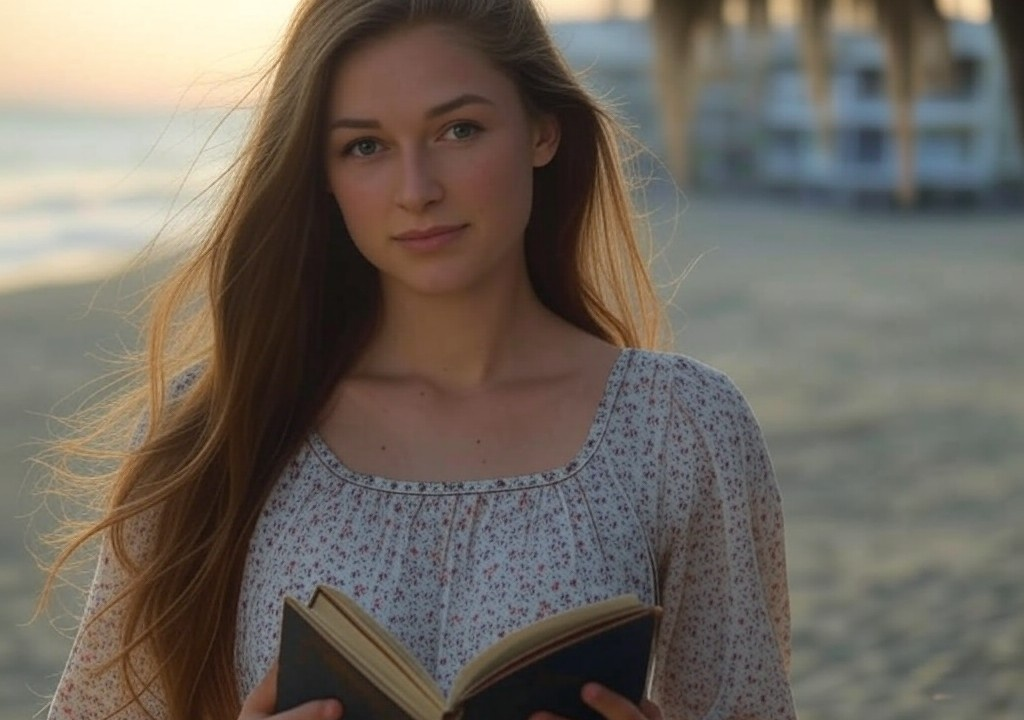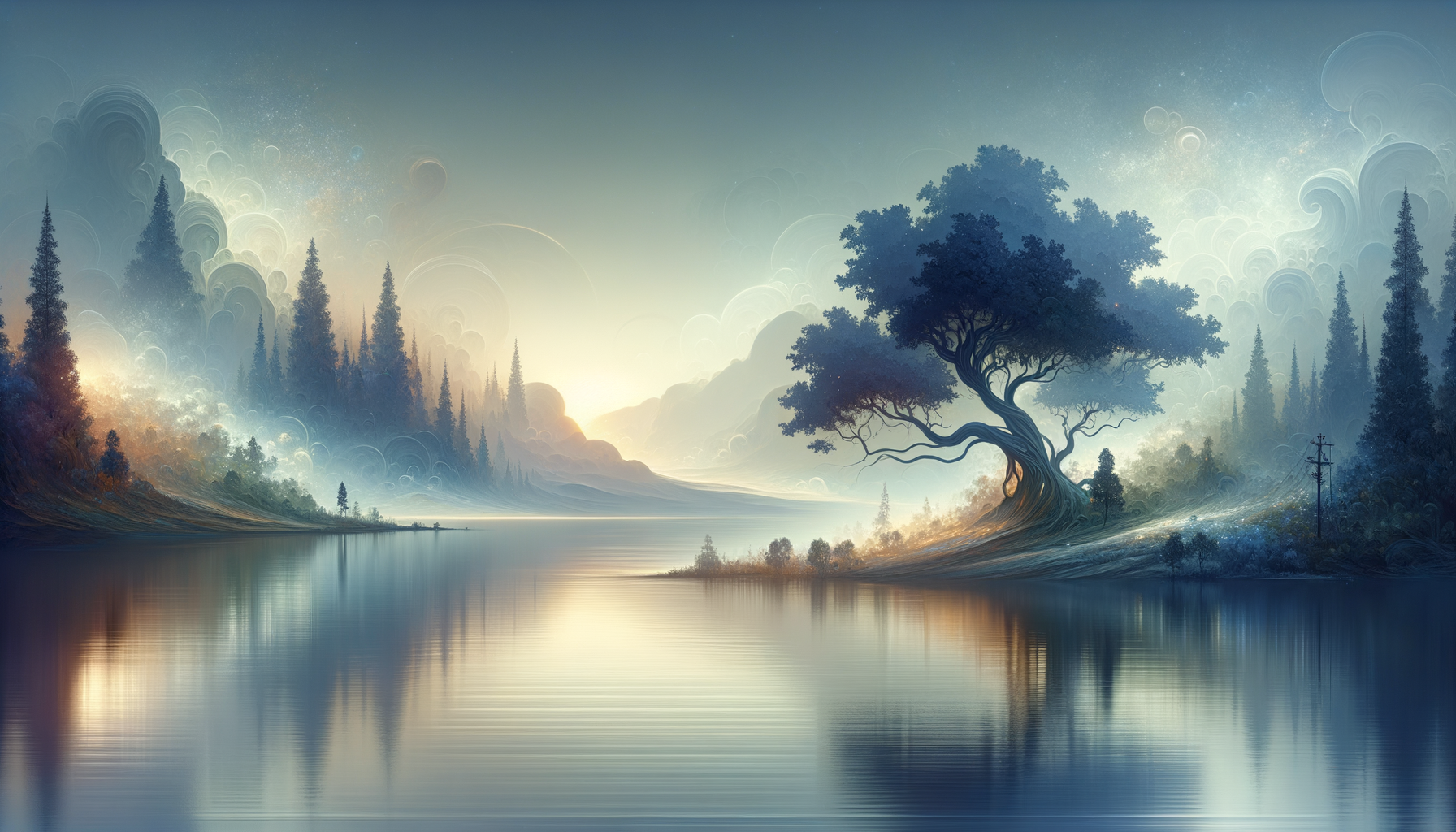The Book That Taught Me About Love (Even When I Didn’t Want to Learn)
For a brief, misguided period after college, I was convinced I might end up as one of those “happily ever afters” solo travelers. You know, the kind of person who posts panoramic selfie shots from mountain peaks or misty piers captioned, “Me, myself, and I—soulmates.” I’m talking full Eat, Pray, Love energy but with more sunscreen and fewer yoga retreats. Relationships? Who had time? I was busy trying to “find myself,” as if I’d somehow left myself behind while binge-watching Grey’s Anatomy.
But then, along came a book that flipped the script—not by giving me any earth-shattering epiphany, but by quietly nudging and comforting me in places I didn’t know I needed soothing. That book? Carson McCullers’ The Heart is a Lonely Hunter. If you’re squinting and thinking, “Isn’t that the one they forced us to read in high school?”—you’re not wrong. But stay with me here. Because while the plot isn’t ripped from today’s Netflix dating dramas, it holds surprising truths about connection, vulnerability, and what it means to really know somebody.
A Tale as Old as Time (But Way More Southern)
Set in a drab, Depression-era mill town, McCullers’ novel spins a web of lonely characters who are all circling life’s big questions: Who am I? What’s my role in all this? Does anyone really see me for who I am? If this doesn’t sound like the most relatable thing you’ve ever heard, I envy you and your emotionally bulletproof soul. For the rest of us mere mortals—with our awkward first dates, unanswered texts, and overly complicated “situationships”—this book hits hard.
One of the standout characters is Mick Kelly, a teenage girl navigating her dreams of music and independence while feeling boxed in by family obligations and societal expectations. Reading Mick’s story at 23 hit differently than it did at 14 when I first skimmed it. Back then, I thought she was angsty and dramatic. As an adult? Oh, Mick. I get you. That push-pull between wanting fiercely to connect with others while still yearning to protect your messy, complicated inner world? It’s essentially every late-night DTR (“define the relationship”) conversation condensed into 300 pages of literary brilliance.
But here’s where The Heart is a Lonely Hunter started holding up a mirror to my own love life—or lack thereof. All the characters are so busy yearning for deep connection that they miss what’s right in front of them. Sound familiar? Ever swiped left on someone because they didn’t match your five-year plan aesthetic or ignored the quiet coworker who probably has a lifetime of fascinating stories? Yeah. Me too. Turns out, loneliness isn’t just about being alone. It’s about missing the chances you have to connect out of fear you won’t know how to handle the intensity of it all.
The Art of Being Truly Seen
Here’s a truth bomb dropped by McCullers, snuck in between all the small-town drama and vivid quiet Southern landscapes: everyone is walking around with their own heavy, invisible suitcases of wants, fears, and unspoken dreams. And while that seems obvious, think about it for a second. How often do you barrel through life assuming someone else’s cryptic text or weird behavior is directed at you, rather than glimpsing the “why” behind their actions?
This book made me realize how important it is to pay attention—to really see the people in my life, even when it feels uncomfortable or inconvenient. Sure, that’s easier said than done (especially when someone cancels plans for the second time and you’re wondering why you even bother). But McCullers has this way of reminding you that even when people fail you, or life doesn’t pan out the way you hoped, there’s beauty in the attempt to connect. Vulnerability might not guarantee a happy ending, but it does guarantee growth.
So, what does this look like in practice?
Here’s where I started small:
- Listen like it matters. How often do we listen defensively—ready to jump in with a counterpoint, dismiss, or even “fix” what someone is saying? I tried shelving the impulse and just letting people talk. And guess what? It works. Friends spill stories they’ve never told before. Romantic interests open up in ways I didn’t expect. Silence, intentional and kind, can be an invitation.
- Ask better questions. Instead of “How was your day?” I started going deeper. “What surprised you this week?” “What’s one thing you’re craving, big or small?” The answers often caught me off guard—in a good way.
- Get comfortable with discomfort. Sometimes, trying to connect is awkward. Sometimes, you’ll put yourself out there and get nothing in return. Mick Kelly and the rest of McCullers’ misfits are proof that it’s worth continuing anyway.
Connection Isn’t Perfect—And That’s Kind of the Point
One moment in The Heart is a Lonely Hunter that wrecks me every time is when John Singer, the book’s central character, realizes he’s been projecting all his hopes and understanding onto a person who likely can’t give them in return. If that doesn’t encapsulate 95% of modern dating, I don’t know what does. The reality is, connection isn’t clean. Sometimes it leaves unanswered questions, heartbreak, or quiet, tender friendships that don’t come with a Hollywood finale. And that’s not failure—it’s just life.
Because of this book, I learned to stop fearing the messy middle and started valuing the ordinary moments of connection—the way boardwalk lights reflect on the water during an evening stroll, the shared laugh over a corny inside joke, the comfort in simply being around someone who gets it, even when you’re not sure how to express it.
My Takeaway: Read Between the Lines
Am I saying McCullers swooped in and turned my sun-soaked beach life into a Nicholas Sparks movie? No. (Although if you’re out there, kindly note I have great hair for a windswept porch scene.) What this book did do is renew an appreciation for taking risks in relationships—romantic, friendly, and everything in between. It’s those risks that make life richer, even when they challenge or scare us.
So, the next time someone whips out a “What’s your favorite book?” on a date, consider this a cheat code. Instead of entering the same Harry Potter and Pride and Prejudice echo chamber (no judgment, I’ve been there), talk about the story that cracked you open. Let them see the vulnerability, even if it’s wrapped up in a cotton-candy smile. If nothing else, it’s a guarantee of one thing: they’ll know you’re paying attention.
Because if there’s one thing McCullers taught me, it’s this: Flirty texts are great, witty banter rules, but real connection? It’s in the quiet, unspoken details we’re brave enough to notice.




















